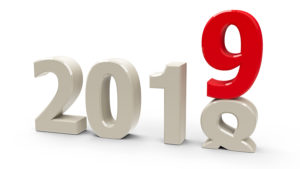Pakistan swiftly retaliated with "killer drones, rockets, loitering munitions and stand-off weapons" to an Iranian military provocation in Balochistan province this week, according to multiple media reports. Pakistanis felt it was necessary to hit back hard to send a loud and clear message to the Iranians to respect Pakistan's national sovereignty. Within hours of the strong Pakistani military response, the foreign ministers of the two neighbors agreed to de-escalate tensions in a phone call. The Pakistani foreign ministry sent out the following tweet after this phone conversation: "Foreign Minister @JalilJilani spoke with the Foreign Minister of Iran, @Amirabdolahian today. Foreign Minister Jilani expressed Pakistan’s readiness to work with Iran on all issues based on the spirit of mutual trust and cooperation. He underscored the need for closer cooperation on security issues".
 |
| Pakistan Foreign Minister Jalil Abbas Jilani (L), Iranian Foreign Minister Amir-Abdollahian |
In the early hours of Tuesday, Iran fired missiles and drones at an armed group Jaish al-Adl in Pakistan’s southwestern border province of Balochistan. Pakistan in turn struck anti-Pakistan Baloch militant targets inside Iran on Thursday. Pakistan also recalled its ambassador from Tehran and blocked the return of Iran’s envoy to Islamabad.
The Iranian attack on Pakistan came without warnings at multiple forums where the two sides were engaging each other. Just prior to the Iranian provocation, the Iranian Foreign Minister met Pakistani Prime Minister Anwarul Haq Kakar at the World Economic Forum in Davos, Switzerland. There were also joint navy drills taking place which were quickly abandoned after the surprise attack.
The only way to explain it is that the IRGC, the Islamic Revolutionary Guard Corps, initiated the attack on Pakistan without consulting with the Iranian government of President Ebrahim Raisi. The IRG also targeted locations in Iraq and Syria. The IRGC works independently of the Government in Tehran. Its commander reports directly to Iran's Supreme Leader Ayatollah Ali Khamenei.
 |
| Late IRGC Commander General Qassem Soleimani |
IRGC appears have been personified by its former leader General Qassem Soleimani who was assassinated by the US military on former President Donald Trump's orders. He was known for his independence from the Tehran government. There were reports in 2018 of then President Hassan Rouhani lashing out at Soleimani during a meeting with several senior IRGC officers in attendance, accusing him of hiding the truth from the president and even from the supreme leader. Soleimani left the room in anger. Earlier, when the two met during Friday prayers, Soleimani warned the president about the “folly of not increasing the budget allotted to Quds.
Soleimani sat by Imam Khamenei’s side at key meetings, conveying his importance in the eyes of the spiritual leader. He met Syrian leader Bashar Al-Assad in February 2019 together with the supreme leader — but without Iran’s Foreign Minister Mohammad Javad Zarif, triggering resignation threats by Iran's top diplomat at the time.
In February, 2019, Soleimani threatened Pakistan. He boasted of Iran's "independent power and honor". He said: "I warn you not to test Iran and anyone who has tested Iran has received a firm response. We are speaking to Pakistan with a friendly tone and we are telling that country not to allow their borders to become a source of insecurity for the neighboring countries..... Iran enjoys independent power and honor. Some countries have wealth, but no prowess. Trump tells the Al-Saud that if it hadn't been for the US support, Saudi Arabia would not have survived and Saudi Arabia's coalitions in the region have all ended in failure." Soleimani's tone in this message to Pakistan is anything but "friendly".
Related Links:
Haq's Musings
South Asia Investor Review
General Soleimani's Hardline Against Pakistan
Iran-Pakistan Ties
Iran's Chabahar and Pakistan's Gwadar Ports
Indian RAW Agent Kulbhushan Jhadav Used Chabahar
Iran-Saudi Conflict
Pakistan's Nuclear Program
Iran Nuclear Deal
1971 India-Pakistan War
Chabahar vs Gwadar Ports
Did America Contribute to the Rise of ISIS?
Riaz Haq's YouTube Channel
PakAlumni Social Network









